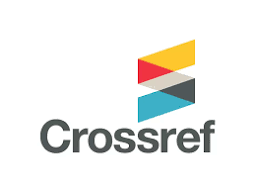Comparison between zinc-probiotic combination therapy and zinc therapy alone in acute gastroenteritis in a tertiary care hospital in Pakistan
Keywords:
Gastritis, probiotic, zinc, OutcomeAbstract
Background: Despite all the efforts, acute watery diarrhea remains a major public health issue worldwide. There is still a high mortality rate in children under 5. Therefore, accurate, timely, and extensive management is crucial in reducing mortality and morbidity. This study is done to assess the use of a combination of Zinc therapy with probiotics and Zinc therapy alone in acute episodes of gastroenteritis.
Materials and Methods: This was a single-centered, comparative analytical study. With a sample size of 150 children. Aged 6 months to 10 years with acute gastroenteritis for 24 hours which were divided into three (A, B, and C) groups. It was done in Fauji Foundation Hospital, Pediatrics ward from 7-02-2022 till 10-08-2022 (6 months duration). Group A received zinc for 5 days only with ORS, group B received probiotics along with ORS / IV fluids and Group C received a combination of both.
Results: Demographic data between the 3 groups showed insignificant differences. The comparison of the three groups regarding feeding history was also insignificant. Mean frequency, duration of diarrhea, and length of hospital stay before and after therapy in different groups were statistically significant.
Conclusion: It was concluded that in children with noninfectious acute gastroenteritis, the use of a combination of probiotic and zinc therapy is more effective in reducing the severity of acute diarrhea than zinc therapy alone
Downloads
Published
Issue
Section
License
Copyright (c) 2023 Mariam Khan Qamar; Armaghana Qamar Khan, Muhammad Amir Saleem, Maryum Hameed, Paras .

This work is licensed under a Creative Commons Attribution-NonCommercial 4.0 International License.
Readers may “Share-copy and redistribute the material in any medium or format” and “Adapt-remix, transform, and build upon the material”. The readers must give appropriate credit to the source of the material and indicate if changes were made to the material. Readers may not use the material for commercial purpose. The readers may not apply legal terms or technological measures that legally restrict others from doing anything the license permits.


